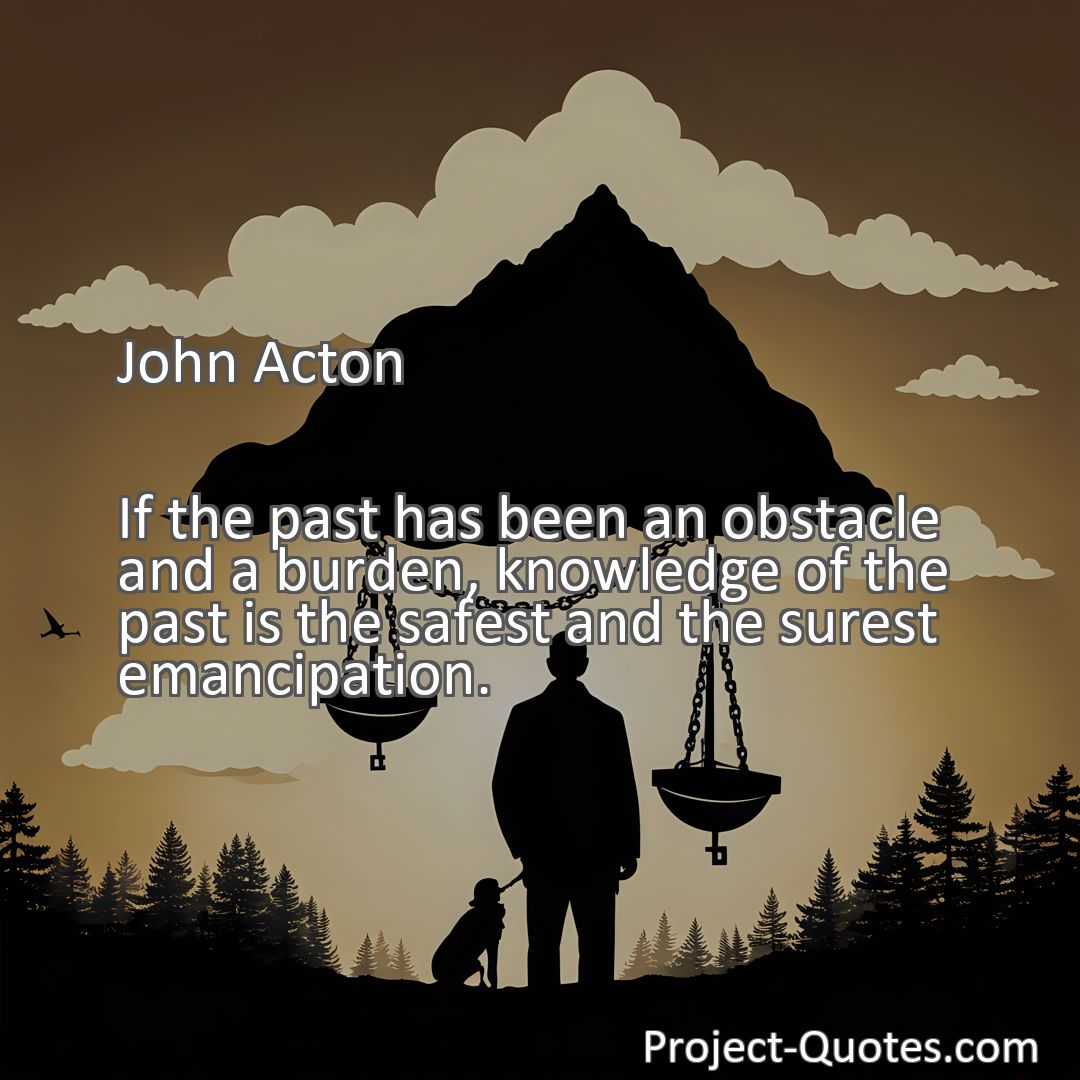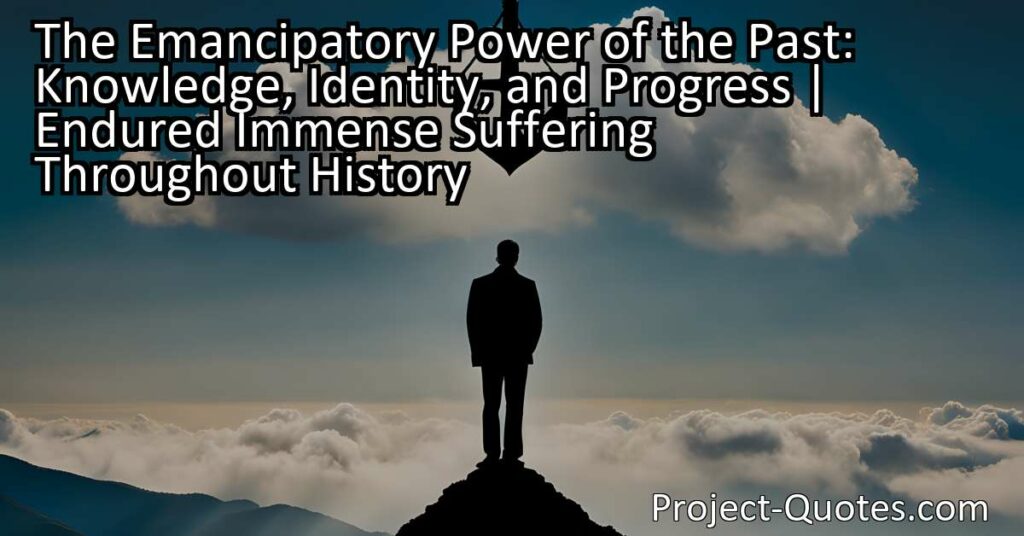If the past has been an obstacle and a burden, knowledge of the past is the safest and the surest emancipation.
John Acton
Throughout history, individuals and communities have faced immense suffering. However, by understanding the past, we can avoid repeating mistakes, foster personal growth, develop empathy, and make informed decisions for a better future. Despite the pain, the past holds the key to emancipation and freedom.
Table of Contents
Meaning of Quote – If the past has been an obstacle and a burden, knowledge of the past is the safest and the surest emancipation.
If there is one thing that humans can never escape from, it is their past. Our past shapes us in ways we may not even realize, influencing our decisions, perspectives, and the way we navigate through life. While some may see their past as an obstacle, burden, or even a source of pain, John Acton suggests that knowledge of the past is the key to freedom – the safest and surest emancipation.
But what does it mean to have knowledge of the past? Does it imply an extensive memory of historical events? Or is it something deeper, a profound understanding of our personal history and the collective experience of humanity? In order to grasp the essence of Acton’s quote, we must explore the various dimensions of the past and how they intersect with our present and future.
First and foremost, knowledge of the past allows us to avoid repeating the same mistakes. History is a treasure trove of lessons, showcasing humanity’s triumphs and its darkest moments. By studying the past, we gain invaluable insights into how actions and decisions have shaped the course of history. We learn about the consequences of oppressive regimes, destructive wars, or even societal divisions. Armed with this knowledge, we can make informed choices, paving the way for a brighter and more harmonious future.
Additionally, understanding our own personal history is an essential aspect of self-discovery and growth. Our past experiences, both positive and negative, contribute to the people we become. Acknowledging and reflecting upon these experiences enables us to gain self-awareness and develop a deeper understanding of ourselves. By recognizing the patterns that emerge from our past, we can make conscious efforts to break away from negative cycles and foster personal growth.
Moreover, knowledge of the past creates a sense of belonging and identity. We are not isolated individuals but rather part of a larger narrative, connected to the generations that came before us. Being aware of our heritage, traditions, and the struggles faced by our predecessors helps us develop a stronger cultural and social identity. The past provides us with a sense of continuity and reminds us that we are part of an ongoing story that is still being written.
In addition to personal growth and identity, knowledge of the past also nurtures empathy and fosters understanding. History allows us to step into the shoes of others, to comprehend their experiences and their perspectives. By learning about different cultures and ideologies, we gain a broader worldview and develop empathy towards those who are unlike us. This understanding enables us to bridge divides and work towards creating a more inclusive and compassionate society.
Furthermore, knowledge of the past equips us with the critical thinking skills needed to navigate the complexities of the present. By examining historical contexts, we learn to question narratives, challenge assumptions, and identify biases. In an era of fake news and information overload, the ability to discern between fact and fiction is more important than ever. Understanding the past empowers us to engage with the world critically and make informed decisions based on evidence and analysis.
On a larger scale, knowledge of the past is essential for the progress of society. Institutions such as museums, libraries, and historical societies play a crucial role in preserving and disseminating knowledge about the past. By making historical information accessible, these institutions ensure that societies can continuously learn, grow, and evolve. Moreover, remembering the past can serve as a powerful tool for social justice movements, advocating for the rights of marginalized groups and challenging systems of oppression.
However, it is important to acknowledge that the past can also be a source of pain and trauma. Many individuals and communities have endured immense suffering throughout history. For them, confronting the past may be overwhelming and emotionally taxing. Therefore, when we talk about the emancipatory power of the past, it is crucial to approach the subject with sensitivity and empathy, ensuring that healing and reconciliation are also prioritized.
In conclusion, John Acton’s quote reminds us that the past should not be viewed as an insurmountable obstacle but as a source of liberation and empowerment. Knowledge of the past serves as the foundation for personal growth, collective understanding, and the progress of society. By learning from history, we can avoid repeating mistakes, understand ourselves and others on a deeper level, and make informed decisions that shape a brighter future. So, let us embrace the past, for within it lies the ultimate key to emancipation and freedom.
I hope this quote inspired image brings you hope and peace. Share it with someone who needs it today!


